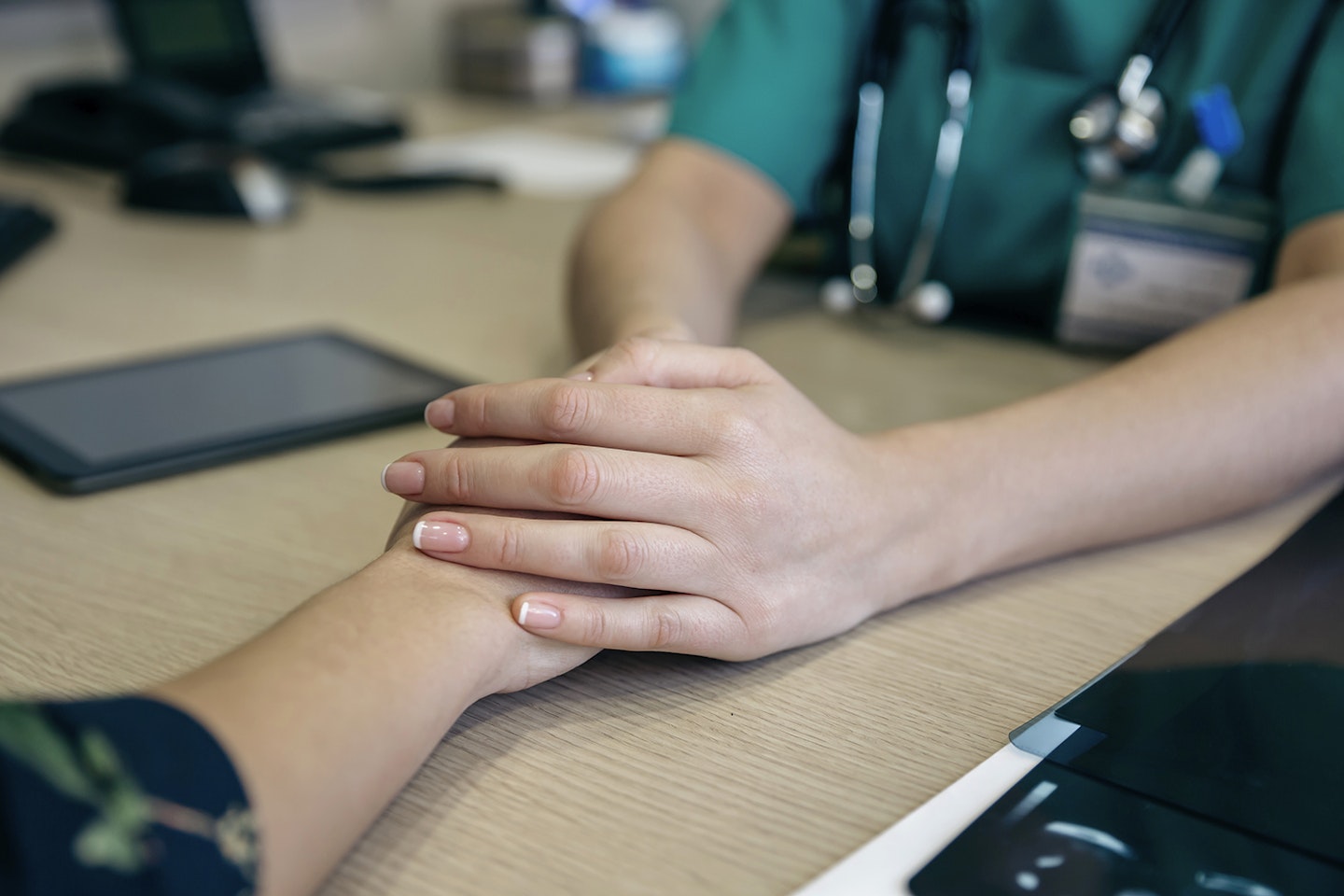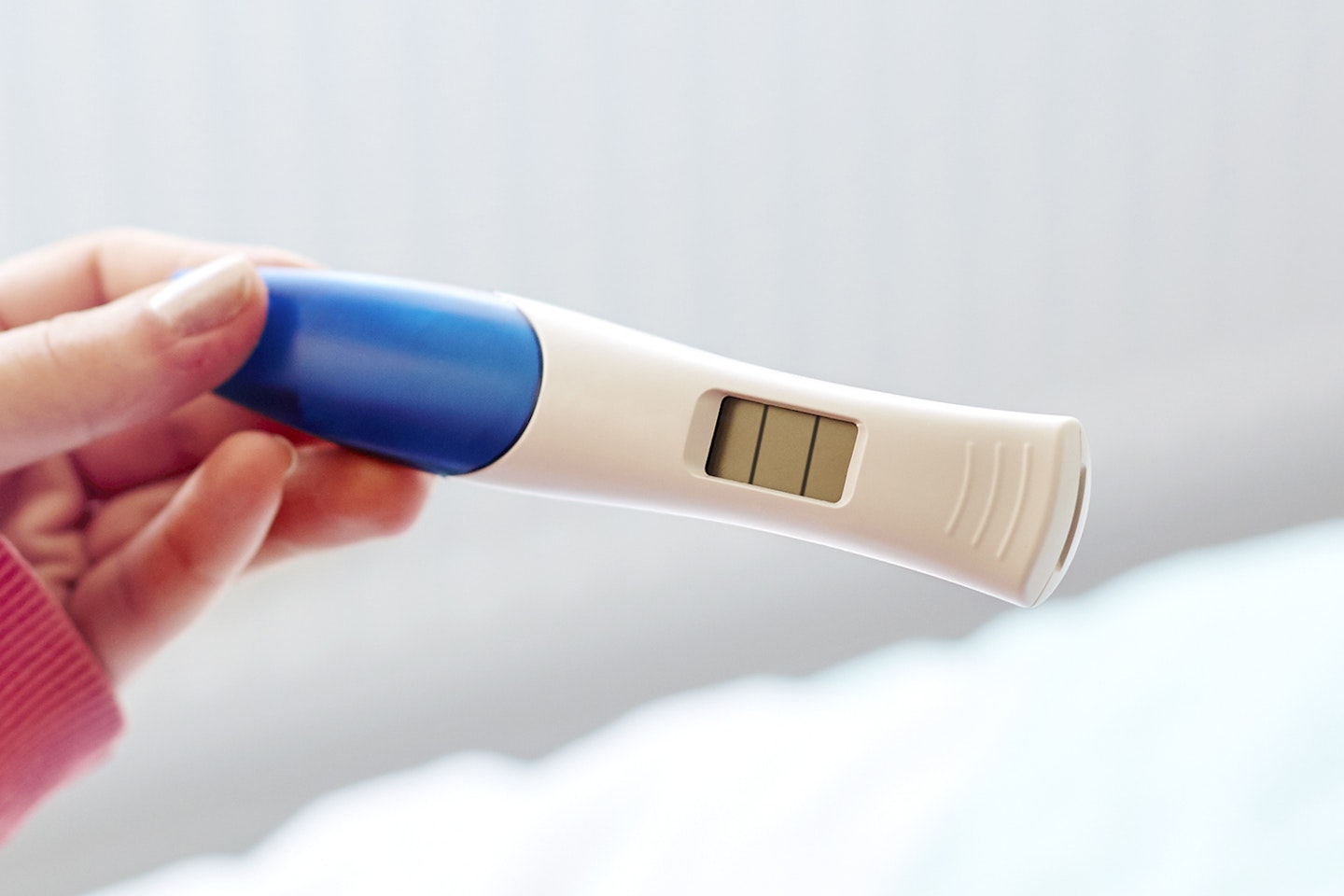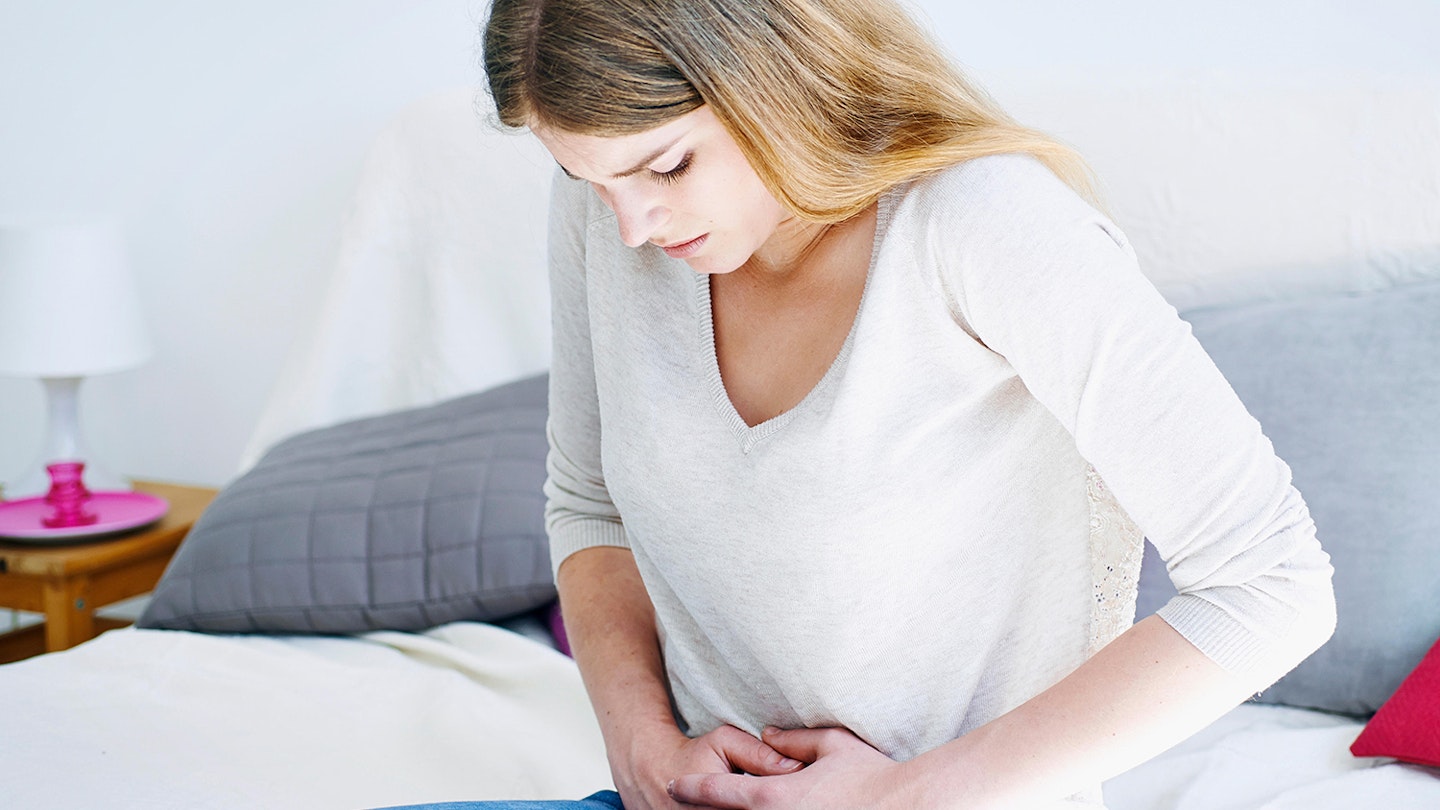From risk factors to symptoms, here's everything you need to know about ectopic pregnancy
We never want to consider the possibility that something could go wrong during a pregnancy.
Expectant parents are always hoping against hope that they'll have a healthy and happy child at the end of their pregnancy, but despite how far we've come in medicine so far, unfortunately not all pregnancies end in happiness.
It's better to know about some of the things that could go wrong, so we spoke to Munira Oza, Director at The Ectopic Pregnancy Trust, to put together everything you need to know about ectopic pregnancy.

What is an ectopic pregnancy?
Ectopic pregnancy affects 1 in 80 pregnancies - and can be life-threatening if not diagnosed and treated quickly.
Put simply, it means an "out of place" pregnancy.
What is the definition of an ectopic pregnancy?
It occurs when a woman's fertilised egg gets stuck somewhere outside the uterus, such as the fallopian tube (most common), a C-section scar, an ovary, the cervix, or directly in the abdomen.
When this happens, the embryo continues to grow until the fallopian tube ruptures, resulting in severe abdominal pain and bleeding.
This can cause permanent damage to the tube or loss of the tube, and, if it involves heavy internal bleeding that's not treated promptly, it can even lead to death.
That's why early diagnosis, immediate treatment, and follow-up care are so important.
When is an ectopic pregnancy most likely to happen?
Ectopic pregnancy is usually diagnosed within the first ten weeks of pregnancy. You might not even know you're pregnant yet, so it can be a big shock.
Who is at risk of an ectopic pregnancy?
Any sexually active woman of childbearing age is at risk of an ectopic pregnancy and often the reason for the ectopic pregnancy will never be determined.
However, medical experts have determined that ectopic pregnancies are more likely if you have had:

READ MORE | Stillbirth: Causes, symptoms, risks and birth process explainedREAD MORE | Stillbirth: Causes, symptoms, risks and birth process explained
What is the cause of an ectopic pregnancy?
Munira said: "Any sexually active woman can be at risk of ectopic pregnancy. Certain elements can increase the risk, but in most instances the precise cause remains unknown.
"This can be really frustrating and upsetting for women who are looking for answers at an already difficult time."
Is ectopic pregnancy hereditary?
It is not a condition which passes from parent to their offspring - you are no more at risk of an ectopic pregnancy than anyone else even if immediate family have suffered.
Is ectopic pregnancy related to abortion?
Absolutely not.
The Ectopic Pregnancy Trust explain: "Abortion is not linked to ectopic pregnancy.
"We would ask anyone struggling with this issue to please be gentle with yourselves and don't believe everything you read on the web, in the news, or in magazines.
"Always check the source of the figures that are quoted. Most of all, don't beat yourselves up for something that cannot be changed and is unlikely to have contributed anyway."
Is smoking linked to ectopic pregnancy?
Some studies suggest that smoking is linked to ectopic pregnancy, as cigarettes can impair the normal progress of a fertilised egg along the fallopian tube, increasing the chance of it being ectopic.
Munira said: "Cigarette smoking is a risk factor for tubal ectopic pregnancy and stopping smoking very much reduces the risk of complications like this occurring in pregnancy."

What are ectopic pregnancy symptoms?
Symptoms can appear early in a pregnancy and often vary from woman to woman.
In some cases, women will experience no symptoms until the ectopic pregnancy has ruptured.
Symptoms include, but are not restricted to, the following:
URGENT: If you are experiencing any of the symptoms listed above, call NHS Direct on 111, or contact your doctor or midwife immediately.
If neither of these options are possible, then please visit your local Accident and Emergency (A&E) department.
I'm suffering abdominal pain – is this an ectopic pregnancy?
Munira said: "Abdominal pain during early pregnancy can be due to many things but it can be a common symptom of an ectopic pregnancy. What we would say is that if a woman has any combination of the risk factors mentioned on our website, to get medical attention right away.
"If a woman has a missed, late or unusual period, any unusual bleeding, abdominal pain that is often one-sided, bowel or bladder problems or shoulder tip pain, these are all symptoms that should be looked into. Women who have experienced shoulder tip pain say that it is a completely unique pain, not like a tension pain or as if you've slept in an awkward position."

Is my bleeding abnormal – or am I having an ectopic pregnancy?
If you don't know whether you are pregnant but find yourself having an unusual period, it may be due to a number of causes, one of which might be an ectopic pregnancy.
The Ectopic Pregnancy Trust advise: "Ongoing bleeding that is sometimes red or brown/black and watery (like 'prune juice') should be investigated. The bleeding may be heavier or lighter than usual. When seeking medical advice, you will be asked for the date of the first day of your last menstrual period which should be the last time you had a normal flow and duration of bleeding.
"It is important that abnormal bleeding does not get confused with a normal period as health care professionals may think you are much less pregnant than you are. Prolonged off/on, light and sometimes heavy bleeding are quite often seen in ectopic pregnancy and should always prompt a pregnancy test and if positive, should be urgently investigated with an Early Pregnancy Unit referral.
"You should be aware of any change in the bleeding you are experiencing. If it becomes very heavy, causing you to soak a pad in less than an hour, or if you soak a pad in two hours with this level of flow continuing for more than 4 hours, you should have this checked out."
Getting to the hospital quickly is important to reduce the risk of haemorrhaging (severe bleeding).
How is an ectopic pregnancy diagnosed?
Ectopic pregnancy is often very tricky to diagnose because it can present symptoms that can be suggestive of other conditions, such as gastroenteritis, miscarriage or even appendicitis.
The more you can tell your doctor (focus on what has changed, what is worrying you, and your symptoms), the more likely they are to be able to diagnose you.
If your symptoms suggest an ectopic pregnancy, medical staff will usually begin by giving you a urinary pregnancy test.
They will then go on to give you an ultrasound, so that they can search for the embryo, and a blood test that measures pregnancy hormone levels to try to confirm a diagnosis.
Munira explains: "If a woman experiences symptoms, she should be seen by a doctor who will conduct tests to help diagnose the cause. This would involve a scan and/or blood tests. The scan usually takes place at six weeks gestation as there is a reasonable chance of seeing an embryo at around this time.
"The ultrasound is transvaginal, which is where a probe is gently placed a couple of inches inside the vagina to enable a detailed examination to check where the embryo is. If the scan is inconclusive then the repeated blood tests every two to three days will check to see how the pregnancy hormone (HCG) is rising. These can give an indication of whether a pregnancy is developing in the way that it should."
The Ectopic Pregnancy Trust say: "Please do be vigilant and take symptoms that concern you seriously until absolutely proven otherwise.
"If your instincts are screaming at you that something doesn't feel right, it's OK to trust them and ask medical professionals for a reassessment at any time."
Is there an ectopic pregnancy test?
Munira said: "If women are wondering whether there is a test to prevent an ectopic pregnancy, unfortunately there is no way to stop them from happening. There isn't a test for identifying women who may or may not have one in advance."
READ MORE | How cuddle cots are easing the heartbreak of losing a babyREAD MORE | How cuddle cots are easing the heartbreak of losing a baby

What is the treatment for an ectopic pregnancy?
Treatment depends on the symptoms and how quickly an ectopic pregnancy is diagnosed. There are three main types of treatment:
Surgery management
Surgery is the most established form of treatment and means performing an operation to remove the ectopic pregnancy while you are under general anaesthetic.
Wherever possible, doctors use keyhole surgery (laparoscopy) but in an emergency, where a tube has ruptured, doctors use open surgery. Depending on the type of surgery, you could be in hospital between one and five days after your operation.
When you are discharged, the ward staff will give you all the necessary advice on aftercare, exercise and diet. Stitches are usually dissolvable and should dissolve completely after 1 week.
Methotrexate (non-surgical option)
If you are in reasonably good health and the pregnancy hormone levels in your blood tests aren't too high, the drug Methotrexate may be used. It will usually be delivered via a single injection into a muscle.
The treatment works by stopping the cells of the pregnancy from growing and, over time, these cells are likely to be reabsorbed into your body.
This method has been developed to avoid surgery, but it does require close monitoring and regular follow-up blood tests at your local hospital or surgery as there is still a risk that the fallopian tube can rupture.
If you experience any signs of rupture (such as severe abdominal pain, shoulder pain, or heavy bleeding), or signs of shock (such as a weak, racing pulse; pale, clammy skin; and dizziness or fainting) while undergoing this form of treatment, contact your healthcare team or visit A&E (by calling 999 if need be) immediately.
Watchful waiting
This is called 'expectant management' where doctors wait to see if the pregnancy can resolve on its own without surgical or medical intervention and would closely monitor the condition instead of immediate treatment. This option might be available if hormone levels are low and general health is stable where the ectopic pregnancy is small on the ultrasound scan and there is no worrying bleeding into the abdomen.
This method of treatment involves regular blood tests to ensure hormone levels are safely dropping. Again, if there are any signs of rupture, it is important to get medical help right away.
Can an ectopic embryo be moved into a safer position?
It is, sadly, not possible to move an ectopic pregnancy.
Can I have a successful pregnancy after I have had an ectopic one?
Yes - 65% of women are healthily pregnant within 18 months of an ectopic pregnancy. Some studies show that around 85% of women are healthily pregnancy within two years of an ectopic pregnancy.
The chance of having a successful pregnancy after an ectopic pregnancy is roughly the same across the three different treatment routes. And, even if one of the fallopian tubes is removed, you can still become pregnant naturally.

How long should I wait after an ectopic pregnancy before trying to conceive again?
It is likely you have been advised to wait for three months or two full menstrual cycles (periods), whichever is the soonest, before trying to conceive if you have had surgery.
If you have had Methotrexate, you should wait until your hCG levels have fallen to below 5mIU/mL (your doctor will advise you when this is through blood tests) and then take a folic acid supplement for 12 weeks before you try to conceive. This is because the Methotrexate may have reduced the level of folate in your body which is needed to ensure a baby develops healthily.
When is it safe to have sex again after an ecoptic pregnancy?
The Ectopic Pregnancy Trust say: "If you are being treated with Medical Management (Methotrexate) or are being Expectantly Managed, you should avoid sexual activity which involves penetration until your hCG blood levels are down to less than 5.
"As hCG levels drop, the risk of rupture reduces but, unfortunately, the risk remains even with very low hCG levels. For this reason, we advise anything that increases intra-abdominal pressure, such as sexual intercourse, is best avoided."
After surgery, many doctors suggest waiting to allow the body to recover, ovulation to occur and the first period to arrive before women begin to have full penetrative sex again, which means waiting until around six weeks. This allows for healing of the muscles and gives you confidence that your body is returning to its normal rhythm. Some couples feel they want to have sex before this time and, ultimately, the decision about when to have intercourse again is one for you and your partner and should be based on when you both feel ready.
The Ectopic Pregnancy Trust
Munira said: "We support thousands of women and their families every year going through this life-threatening and emotional ordeal. We have a number of services by way of a helpline, our website and our forum where women can connect with other women who have been through this trauma, offering peer-to-peer support. A lot of families who have been through this devastating time say that it has been crucial.
"With an ectopic pregnancy, everything happens in a very short space of time. A woman has to deal with invasive surgery or repeated and demanding hospital trips, losing part of her fertility and having worries about the future. For a couple to come to terms with that takes a lot – it's a huge mountain and can be a lonely place. No family should have to come to terms with this devastating condition on their own and we exist as a shoulder to lean on during those difficult days."
WATCH: Widow shares her incredible weight loss transformation
READ MORE...
READ: 10 beautiful stillbirth & miscarriage poems to help grieving mothers
Mother’s Day after miscarriage or stillbirth: Advice on how to cope and grieve
